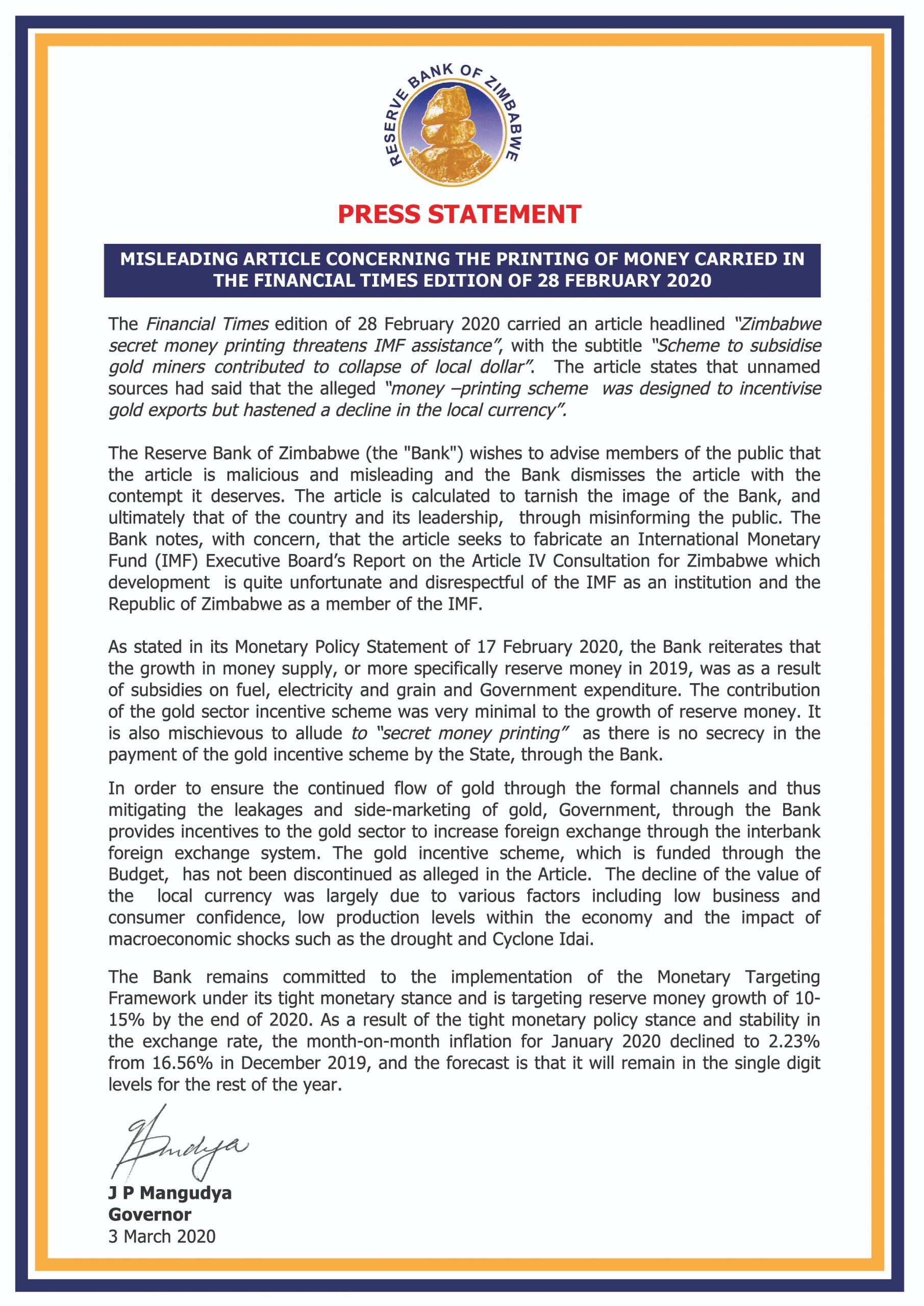The Reserve Bank of Zimbabwe yesterday published two press statements addressing matters that have been in the public sphere recently. One statement sought to refute the allegations by the Financial Times that Reserve Bank was printing money to try to incentivise dwindling gold deliveries. The second statement was an attempt at transparency in terms of the allocation of foreign currency to fuel importers. Both statements were however met with contempt by the general public and raised more questions than answers.
We are not printing money
The Financial Times published a story in which it claimed that the International Monetary Fund, with which Zimbabwe has a staff monitored program, had been alarmed by the secret printing of money by the RBZ to fund gold incentives and subsidies. This threatened the countries relationship with the IMF who had since advised authorities to cease the activity. With gold deliveries to the government via Fidelity printers dwindling due to a policy that prejudices gold producers of foreign currency instead, paying them local currency at below the generally accepted parallel market rate, the government has lost much potential to earn foreign currency.

The RBZ issued the above statement yesterday as a categorical denial of any of the activities alleged. However, the statement was received critically by the public. It was not expected that Reserve Bank would do any less than deny the allegations. Unfortunately, past behaviour also weighs against the Bank who has on multiple occasions denied facts. Zimbabwe’s money supply was expected to grow 10% in 2019 but grew a whopping 129%. Incidentally in the last 12 months, the parallel market rate for the US dollar has gone from 3.5 to 30.8 as of yesterday. After years of terrible and confusing communication, the Bank is fighting a losing battle on the public front. The statement closes with a sentence that I believe will not age well as the RBZ lauds its “tight monetary control” for bringing inflation down to 2.23% for the month of January 2020 where it will stay for the rest of the year.
Fuel allocations
Another source of misery for the Reserve Bank has been its role in providing subsidised foreign currency to fuel companies which in turn has not lead to improved supply of the commodity. The Reserve Bank in what can only be viewed as a bid to show transparency published a list of the companies that have received foreign currency from the bank as well the amounts received under letters of credit from the bank. Letters of credit are bank guarantees of payment of funds for specific transactions so the fuel companies use these to guarantee banks of fuel suppliers that they will in fact be paid in foreign currency.

Trafigura, which recently dumped controversial Sakunda was the biggest recipient and that in itself was not a shock but rather a confirmation of just how big a problem that organisation’s ties with political power may be. Interestingly also. The RBZ pledged as the statement reads to make this a weekly publication. That is, of course, welcome however with a track record of misinformation more information does not exactly make for a good thing.
The RBZ refuting the claims of the Financial Times is a non-event in the scheme of things and a retraction by the Financial Times would’ve been much more convincing. One would have to think back much farther than my memory can take me to recall a RBZ move that has benefitted the nation. We look forward to seeing the weekly publication of the fuel foreign currency allocations and of course to seeing if inflation will indeed remain at single-digit levels month on month.








